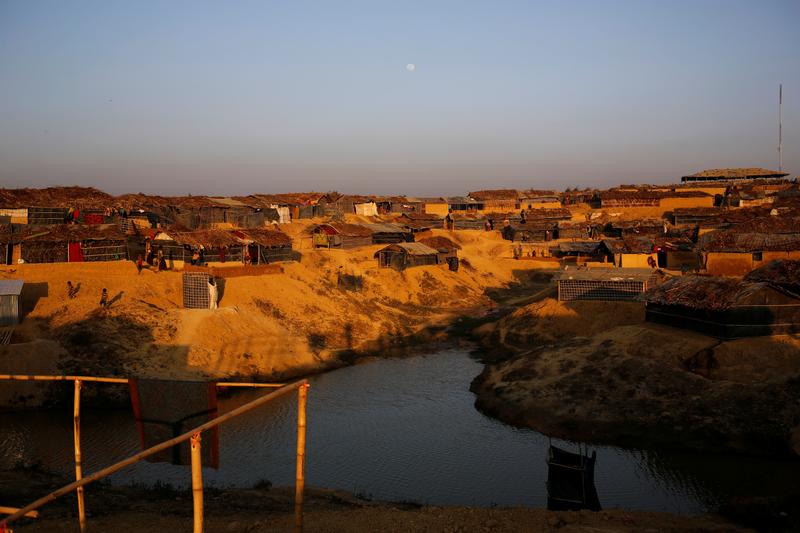DHAKA, Bangladesh — Left drenched and near destitute by a cyclone that ripped across the Bangladesh coast a day earlier, scores of thousands of Rohingya refugees hunkered down in the ruins of their camps on Wednesday, desperate for relief after a night in the rain.
At least seven people were killed and 50 injured by Cyclone Mora, according to Mohammad Ali Hussain, the chief administrator of Cox’s Bazar district, a sliver of land in southeast Bangladesh bordering Burma.
The border area that bore the brunt of the storm is home to refugee camps for Muslim Rohingya who have fled from their homes in northwest Burma to escape communal violence and Burma Army crackdowns.
“Initial reports suggest damage to shelter in camps sheltering Rohingya refugees is severe in makeshift settlements, particularly in Balukhali and Shamlapur in Cox’s Bazar,” the Office of the UN Resident Coordinator for Bangladesh said in a report.
Daniel Sullivan, senior advocate for human rights with Refugees International, issued an appeal for help.
“Already among the world’s most vulnerable people, the Rohingya now are facing a further calamity,” Sullivan said in a news release issued in Washington.
“Their crowded shelters made of mud and flimsy tarps have surely been devastated in the cyclone, creating an urgent need for a swift emergency response.”
The Bangladeshi government has estimated that in all, there are about 350,000 Rohingya in Bangladesh following a fresh influx last October, when the Burma Army launched an offensive in response to insurgent attacks.
Authorities in Cox’s Bazar and neighbouring Chittagong district evacuated 350,000 people from low-lying areas before the storm blew in from the Bay of Bengal on Tuesday morning.
But most Rohingya remained in their camps when the storm struck, with priority given to evacuating only the most vulnerable, like heavily pregnant women.
Omar Farukh, a community leader in Kutupalong camp — one of several camps for Rohingya in Cox’s Bazar — described the misery of people left behind.
“We have passed a difficult time. We had no tin or plastic sheets above our heads and almost all of us passed the night in the rain,” Farukh told Reuters by telephone.
“We tried to save our belongings, whatever we have, with pieces of plastic sheet.”
Still waiting
Another community leader told Reuters a day earlier that at least 10,000 houses were destroyed in Balukhali and Kutupalong, two of the five main camps in Cox’s Bazar.
The wind, which had gusted up to 135 kph (85 mph) during the height of the storm, had died down, but a steady rain was falling at daybreak on Wednesday.
Airports and ports in Cox’s Bazar and Chittagong had reopened.
[related]
Farukh said officials from various aid agencies — including the International Organisation for Migration and Save the Children — had visited Kutupalong camp to see what was needed, but people were still waiting for relief to arrive.
A relief worker who had visited the Balukhali camp gave a less alarming account.
The aid worker, who requested anonymity, estimated that one in four huts in the camp had been damaged, and there were no serious injuries and people had begun repairs.
Beyond the camps, officials were also assessing the damage elsewhere in Cox’s Bazar. The chief administrator said 17,500 houses had been completely destroyed and 35,000 partially damaged in the district.
“Almost all rickety houses in the district were completely or partially destroyed by the cyclone. Not only Rohingya houses,” Hussain said.
The cyclone lost some of its force as it moved inland and across the eastern border into India.
Strong wind and heavy rain battered houses, brought down electricity lines, and damaged telecommunication towers in India’s Mizoram state, cutting communications and power.
The Meteorological Department said the weather system was very likely to continue to move north-northeast and weaken into a cyclonic storm and later into a depression.
Other northeastern Indian states had received heavy to very heavy rainfall since Tuesday evening.



